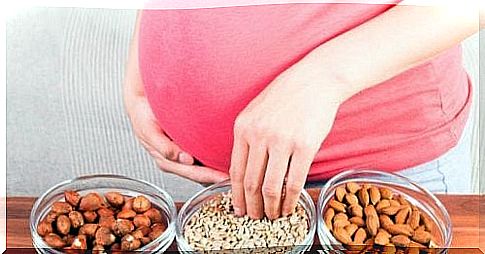Anemia During Pregnancy – Being Parents

Anemia during pregnancy is a common complication in pregnant women. According to statistics, about 95% of pregnant women are affected by this situation.
Anemia is manifested by a drop in iron levels below normal. Iron is fundamental in the process of making hemoglobin. It is a protein found in red blood cells that has the function of transporting oxygen to other cells.
What Happens During Pregnancy?
During pregnancy, a woman experiences a 50% increase in blood in her body. This means that the presence of iron in the blood must be higher, in order to produce more hemoglobin for this extra blood.
How to recognize anemia during pregnancy?
One of the main symptoms produced by anemia during pregnancy is fatigue. Tachycardia is also common. There is also a pallor and weariness in women. This all happens because there are fewer red blood cells to carry oxygen and the heart has to work harder.

But it should be borne in mind that there are asymptomatic anemias, especially when they are of a mild nature. That is why gynecologists order blood tests during the first prenatal visit. In this way, a possible case of anemia can be reliably detected.
In addition, anemia does not only develop during the early stages of pregnancy. Therefore, blood tests should be done throughout pregnancy.
The causes
Anemia during pregnancy is most often caused by a lack of iron in the blood. However, this is not the only reason. The lack of folic acid intake is a factor that also influences. The same goes for vitamin B12 deficiency.
Abundant blood loss or sickle cell disease are also determining factors. However, in some cases, the actual anemia is less than what the tests indicate. Indeed, during pregnancy the presence of other fluids in the blood also increases. This is called hemodilution.
This phenomenon is characterized by the presence of iron and hemoglobin in sufficient quantities, but diluted among other fluids in a manner greater than normal.
The treatment
Fortunately, anemia during pregnancy can be treated. Daily doses of 30 mg of iron are recommended. This is 30% more than what is normally prescribed.
“If the tests show anemia during pregnancy, the gynecologists prescribe supplements of 60 and 120 mg of iron per day.”
In order to better absorb iron, it is advisable to take it on an empty stomach. The intake of orange juice will help in the process of iron absorption thanks to the presence of vitamin C. On the other hand, it is not recommended to consume iron with milk, because calcium does not facilitate absorption.
Food
To prevent anemia during pregnancy, it is recommended to eat foods that contain a lot of iron. In this case, red meat is a great alternative.
In general, almost all types of meat are suitable. Seafood can also be part of an appropriate diet for anemia during pregnancy.

Meat is not the only food rich in iron, however. Legumes, raisins and potatoes with the skin on are also an excellent source of iron. Likewise, dates, apricots, and tofu are a good option to include in a diet to boost iron levels. The same goes for dried fruits.
Fish is also very high in iron, but it should be eaten with care. This is because fish poisoning can be dangerous for the expectant mother.
It is important to rule out any risk of anemia during pregnancy in anticipation of a premature delivery. What usually happens is that when there is a lack of iron, the baby takes it from the mother. Therefore, the pregnant woman can end up with iron deficiency.
It is essential to be aware of the need to prevent anemia during pregnancy. Otherwise the newborn could also suffer from it during childhood.
A good diet as well as constant checks will prevent any deficiency in iron or any other nutrient vital for the development of the future baby.









